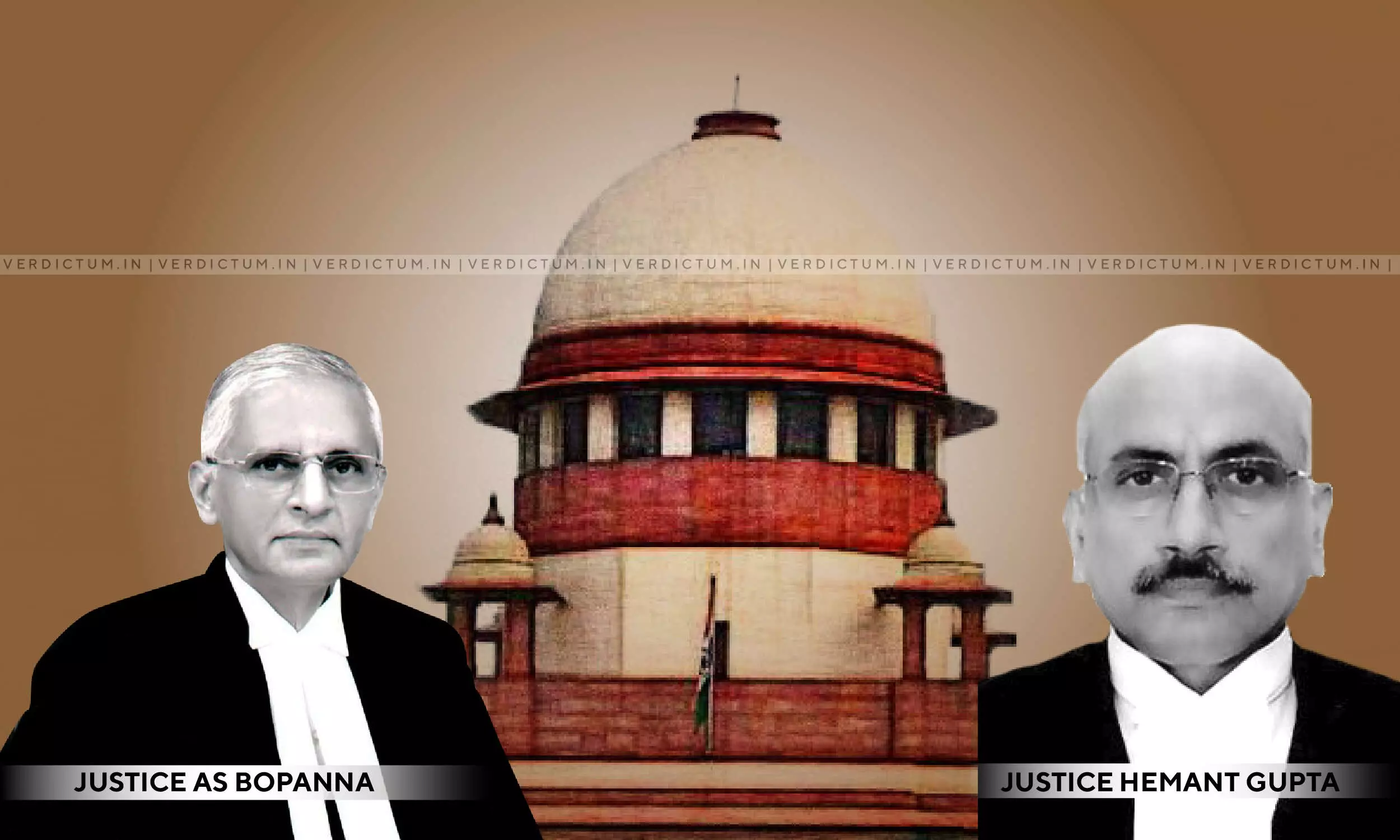
The Right To Shelter Does Not Mean Right To Government Accommodation: Supreme Court Seeks Report On Retired Officials Occupying Government Accommodation
 |
|A two-judge Bench of Justice Hemant Gupta and Justice A.S. Bopanna observed, "The right to shelter does not mean right to government accommodation."
The Supreme Court was seized of an appeal filed from a Judgment of the Punjab and Haryana High Court which allowed a retired Intelligence Bureau Officer, the Respondent, to retain the government accommodation that was allotted to him during his services.
Onkar Nath Dhar, the Respondent, was a Kashmiri migrant who had retired from his post as an officer from the Intelligence Bureau. Following his retirement, he had requested for permission to retain the government accommodation that had been allotted to him on a nominal licence fee, till the circumstances prevailing in Jammu & Kashmir improved and the Government made it possible for him to return to his native place.
However, he was served with a notice under the Public Premises (Eviction of Unauthorised Occupant) Act, 1971 and an order of eviction was passed, but was stayed by the Additional District Judge of Delhi. An objection was raised regarding territorial jurisdiction of the Delhi Court, after which, the Respondent withdrew his appeal and filed it before the Faridabad District Court, which dismissed the appeal. This order was then challenged before the Punjab and Haryana High Court. The Single Bench of the High Court allowed the appeal, which was affirmed by a Division Bench of the Court.
The Appellant government, therefore, challenged this Judgment of the Punjab and Haryana High Court. The Supreme Court agreed with the contentions raised by the Appellant and observed, "Government accommodation could not have been allotted to a person who had demitted office."
In this regard, the Apex Court made four observations:
- Retired Persons Do Not Have The Right To Continue To Occupy Government Accommodations
The Court held, "That the Government accommodation is only meant for in-service officers and not for the retirees or those who have demitted office. Therefore, the view of the learned Delhi High Court and that of the Punjab & Haryana High Court is erroneous on the basis of compassion showed to displaced persons on account of terrorist activities in the State."
The Court asserted that compassion could be shown by accommodating displaced persons for two or three months, but allowing them to retain the accommodations defeats the purpose of Government accommodations, as they are meant for serving officers. "The compassion howsoever genuine does not give a right to a retired person from continuing to occupy a government accommodation."
- Government Accommodations Cannot Be Occupied By Displaced Persons
The Court clarified that there was no policy in place whereby the Central and the State Governments had to provide government accommodations to displaced persons.
"According to a policy framed by the government, a displaced person is to be lodged in a transit accommodation and if it is not available then cash compensation is to be provided. But the displaced persons cannot occupy government accommodation. If a retired government employee had no residence, they have an option to avail transit accommodation or to receive cash compensation in the place of transit accommodation. The right of shelter is taken care of when alternative Transit accommodation is made available to the migrants to meet out the emergent situation," the Court held.
- Right To Shelter Does Not Mean Right To Government Accommodations
While responding to the Appellant's contention that the right to shelter is a fundamental right under Article 21 of the Constitution, the Court noted, "A right to shelter is a fundamental right, that may not be disputed, but such a right of shelter is granted to millions of Indians who do not have shelter. A section of society, more so retired government employees, who had earned pension, drawn retirement benefits cannot be said to be in such condition, where the government should provide government accommodation for an unlimited period."
The Court further held, "The direction to allow a retired government servant to retain government accommodation for an indefinite period, to say the least, is a distribution of state largesse without any policy of the State. A section of the migrants cannot be treated as preferential citizens to give them the right to shelter at the cost of millions of other citizens who do not have a roof over their heads. The right of shelter to the displaced person is satisfied when accommodation had been provided in the transit accommodation. Such right of shelter does not and cannot extend to provide a government accommodation."
- Government Accommodations Are Meant For Serving Government Employees, Not Retirees
The Court observed, "The government accommodation is meant for the serving government employees to facilitate the discharge of their duties. The government accommodation is not meant for the retirees. The accommodation to the retirees is at the cost of serving officers."
The Court held, "The right to shelter does not mean right to government accommodation. The government accommodation is meant for serving officers and officials and not to the retirees as a benevolence and distribution of largesse."
The Bench directed the Appellant to submit a report of the action taken against the retired Government officials who are in Government accommodation post their retirement by virtue of the orders of the High Courts, on or before 15.11.2021.
The Court, therefore, allowed the appeal and set aside the Judgment of the Punjab and Haryana High Court.